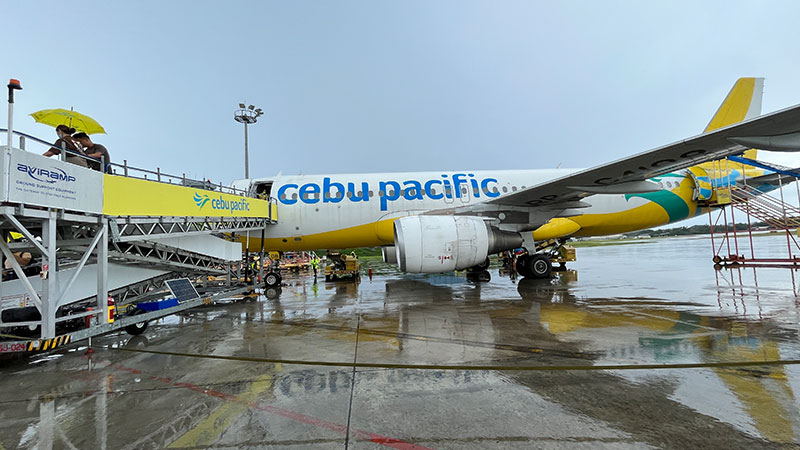Push airlines to use biofuels, gov’t urged
NARITA, JAPAN—Budget carrier Cebu Pacific is banking on government support to incentivize and encourage airlines to use sustainable aviation fuel (SAF), which it said could help lower the cost of the biofuel and accelerate the commercial aviation sector’s net zero targets.
Cebu Pacific president and chief commercial officer Alexander Lao told reporters on Tuesday that the current cost of SAF remained “prohibitive,” making it difficult for airlines to shift to sustainable fuel, especially for long-haul flights.
“It is anywhere between three to five times more than the current price of normal jet fuel. I think we’re still at the very early stage where supply is quite minimal. We do expect that should supply come up, prices of SAF will come down eventually,” Lao said when quizzed on how the Gokongwei-led airline could maintain low fares despite the high cost of “green” fuel.
Cebu Pacific has so far used blended SAF for a commercial flight once during the inaugural Singapore-Manila trip last September 2022.
Its Narita-Manila flight on Wednesday, Oct. 25, will be the second commercial trip that will utilize SAF.
SAF is a “greener” alternative to fossil fuel-based aviation fuel, as it can be processed from plants and used oil feedstock, including forestry and agricultural waste and used vegetable oils.
In the Philippines, coconut oil—which is also used for biodiesel production—is a potential SAF feedstock.
While international airlines are pressured to shift to sustainable fuel by 2027 through the Carbon Offsetting and Reduction Scheme for International Aviation (Corsia), Narita International Airport Corp. general manager for airport sustainability Toshio Tashiro said manufacturing remained limited.
Corsia was established by the International Civil Aviation Organization to reduce emissions from international aviation. Philippine airlines such as Cebu Pacific are mandated to implement Corsia by 2027.Globally, only Singapore and Belgium have SAF manufacturing facilities, Tashiro pointed out.
“Currently, the production of SAF is 0.1 percent of the entire production globally, so it’s quite small,” he added.
For Lao, the solution was to urge various government agencies to incentivize airlines that use SAF. This way, Lao said these companies could be encouraged to drive SAF demand, which could likewise pull up supply.Cebu Pacific is currently the only Philippine airline that has been using SAF for a number of commercial and delivery flights.
At the same time, Lao noted that airlines needed to work with various government agencies to help increase the supply of raw materials used as SAF feedstock.
“We started discussions with local suppliers, but it’s more [for] the raw material supply. We’ve started discussions with the Department of Energy (DOE) and the Department of Transportation with regards to the availability of SAF,” he said.
While these policies for increased SAF utilization remain pending, Lao added that they were working on other fuel efficiency measures to reduce Cebu Pacific’s carbon footprint, including the deployment of more neo (new engine option) Airbus units.
Neo units allow airlines to improve fuel efficiency, as these use 20 percent less fuel than other aircraft.
For its part, the DOE earlier said it was working on the framework and regulations needed to support the adoption of SAF and push for the decarbonization of the Philippine aviation industry. INQ

